



We’re working with clients to advance diversity, equity and inclusion at their workplaces.
A diverse, equitable and inclusive workforce can have a transformative impact on an organization. Well-designed diversity, equity and inclusion (DEI) strategies can:
We work closely with clients to ensure their DEI strategies are designed to achieve these positive outcomes — and that their DEI goals align with and contribute to their overall business goals.
Organizations that are just getting started on their DEI journey should begin by articulating what they would like to achieve. The program vision is critical to building consensus and momentum around the initiative and will help inform the actions that follow. Establishing priorities, defining investments, developing the business case and including measurable targets are critical steps in the process.
Organizations that are further along their DEI journey may already have a vision and strategy in place. If so, routine program audits or reviews provide an opportunity to adjust, refine and build on the initial initiatives.
We suggest focusing on the following four key areas:
Enhancing your culture helps you become an employer of choice so you can better attract and retain top people. Building a diverse talent pipeline starts with the development of a strategic approach to identifying recruitment pools that reflect diversity targets so you can outreach accordingly. To maximize recruitment results, vet job descriptions to remove bias and promote equity in the interviewer process.
To improve retention, make sure onboarding launches employees on a positive trajectory; creating internship and entry-level opportunities; elevate the employee voice through resource groups, forums and company initiatives; and support coaching and professional development.
Increasingly, employee pay and benefits are seen as vital to DEI strategy because of their potential to drive positive outcomes and improve the value proposition for diverse employees.
Organizations that act to pursue pay equity typically have better retention of key talent and better performance from their workers.
Similarly, organizations that offer employee benefits that include more choice, personalization and support for employees at each career and life stage typically outperform their peers in terms of workplace productivity metrics, employee engagement and net promoter scores.
If you aren’t confident that your employee benefit designs are working for all your employees individually, consider gaining more insight on your employees’ diverse needs and experiences. Begin by evaluating three key areas: workplace, health and wealth.
Identify strengths and weaknesses.
Get recommended steps to improve benefits equity.
Thirty-eight percent of companies choose to go beyond regulatory requirements and voluntarily make public diversity commitments that require tracking and disclosure, according to Baker McKenzie. If you have publicly made DEI promises, consider whether your organization’s legal, compliance and/or HR functions are meaningfully connected to DEI initiatives in ways that promote policy alignment, provide clarity and help manage risk.
To embed your organization’s DEI principles into HR policies, procedures and training while complying with the law, ensure you have key data available to report on progress relative to the goals you’ve stated. Understand what legal requirements you have committed to, and which resources can help advise you when DEI topics arise. Also mind the gaps in expectations between different constituencies, as global ESG standards continue to evolve, sometimes in conflict with DEI positions taken in local U.S. jurisdictions. Designing smart DEI policies and procedures, in consultation with your own legal counsel, can help you excel in reaching your annual business goals.
Organizations can’t rely on good DEI policy alone to retain their diverse talent. Engaging with diverse workers to promote inclusion and belonging is key. Research shows that creating feelings of inclusion — the “I” in DEI — is key to lowering attrition for diverse workers. When programs are personalized in their approach to communicating with and engaging employees, based on an understanding of individual needs and desires, they can help promote desired behaviors, reinforce organizational goals, build consensus across teams and increase organizational loyalty and affinity.
Ensure your DEI strategy covers these components:
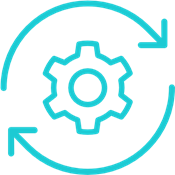
Strategy & Program Audit
Assess existing DEI vision, strategies, initiatives and practices to identify strengths and reveal any gaps.
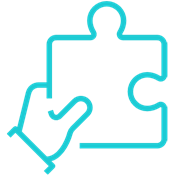
Strategy Design & Implementation
Design a DEI strategy that follows best practices and ensures effective adoption across an organization.

Educational Programs
Establish robust professional and leadership development resources that deepen cultural competencies among leaders and employees.

Recruitment Strategies
Enhance your ability to attract top candidates through employer branding tools and by proactively building pipelines to diverse talent.
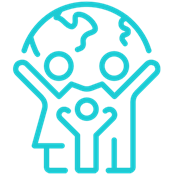
Cultural Support Programs
Establish best practices — such as employee resource groups — to best enhance your culture and support diversity goals.

Inclusive Benefits Design
Ensure that your employee benefits are designed through a diversity lens and responsive to the needs of your entire workforce.
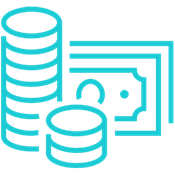
Pay Equity Design & Compliance
Ensure compliance with pay-equity requirements and design compensation programs that enhance your competitive edge.

Communications
Create consistent and compelling messages that convey your DEI commitment and vision to internal and external stakeholders.
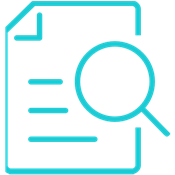
Policies and Procedures
Ensure that DEI principles are embedded into your HR policies and procedures.
Implementing DEI programs as one coordinated, strategic initiative promotes collaboration throughout your organization and can yield better outcomes long term.
Such a holistic approach breaks down silos and encourages various internal teams to work together to reach the common goal: building a workplace that works for everybody.


We’re subject matter experts on DEI. See our insights.
Moreover, DEI is in our DNA. Learn about DEI at Segal.
© 2025 by The Segal Group, Inc.Terms & Conditions Privacy Policy California Residents Sitemap Disclosure of Compensation Required Notices